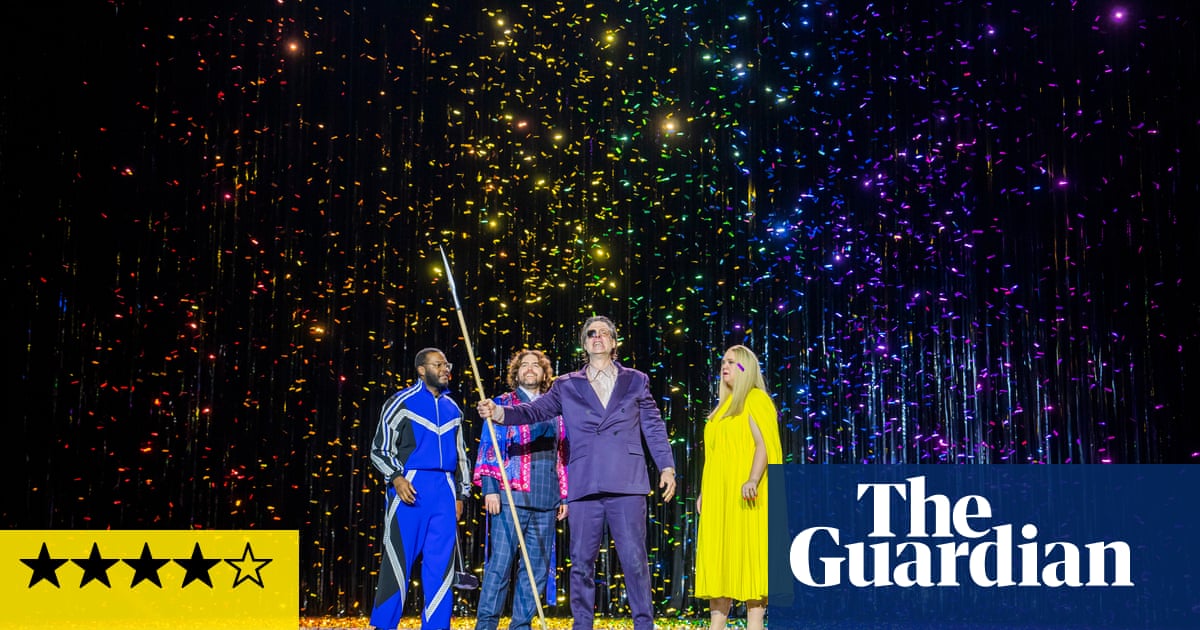
f you go to Opera Holland Park this summer, you may well find yourself sitting in an imitation Regency chair, as I did on opening night. Ever the most resourceful of companies, OHP have carefully and ingeniously tackled the issue of Covid safety with a new auditorium, designed by takis, that leaves the side walls open to the breeze and uses a flexible seating plan so that chairs can be grouped and regrouped as necessary. The chairs are recycled from previous productions – from other theatres as well as OHP’s own – whence the period furniture for the audience.
takis has also designed the opening production, a new staging of Mozart’s Marriage of Figaro, conducted by George Jackson and directed by Oliver Platt, a quirky, gaudily handsome piece of theatre in which the 18th century collides with the modern. A periwigged chorus waves cheerleader pom-poms as they sycophantically praise Julien Van Mellaerts’s libidinous count. Samantha Price’s Cherubino, already in military uniform, sings Voi Che Sapete holding the song’s rolled-up text like a microphone and looking like a 1980s New Romantic star, while the nocturnal confusions of act four are played out by flashlight.
Platt’s interpretation is more domestic than political, though his psychological insights are often acute, and the relationships between Ross Ramgobin’s wide-eyed, witty Figaro and Elizabeth Karani’s knowing Susanna, and between Van Mellaerts and his dignified, yet desperate countess (Nardus Williams), are beautifully explored and observed.
As so often at Holland Park, ensemble values are high, though Williams in some ways stands out, singing with exceptional lustre and warmth: Dove Sono is quite simply ravishing. Van Mellaerts similarly makes a superb count, a dangerously attractive figure, capable of turning from charm to angry hauteur in a flash, his sullen reaction to his final discomfiture making the final scenes ambivalent in the extreme.
Karani’s silvery voiced Susanna, wonderfully self-assured, gives him as good as she gets in their confrontations, sounds lovely in the act three Letter Duet with Williams, and is touchingly affectionate in her scenes with Ramgobin’s naive, attractive Figaro. Price does fine things with Cherubino’s arias. Victoria Simmonds is the unusually sympathetic Marcellina, Daniel Norman the outrageously funny Basilio. The City of London Sinfonia, meanwhile, play superbly for Jackson, an excellent conductor, wonderfully alert to the sadness as well as the humour that permeates the score.












